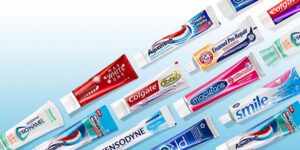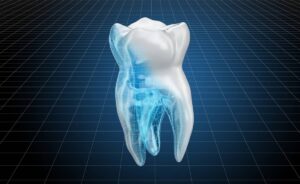Have you ever felt a toothache? It’s a pain that can make even the most stoic person wince. And if you have sensitive teeth, it means that even mild sensations like hot food or cold water cause discomfort. Fortunately, there are ways to treat sensitive teeth that don’t involve an appointment with your dentist (or even an over-the-counter medication). So no matter how bad your tooth pain is, these tips will help ease your discomfort.
Take care of your gums
Brushing and flossing are the most important things you can do to keep your teeth and gums healthy. A dentist should also be part of your daily routine—don’t skimp on regular visits, even when you don’t think there’s anything wrong with your teeth.

If you have sensitive teeth, avoid tobacco and alcohol (which can dry out the mouth), as well as caffeine (which is acidic). If those are difficult for you to give up, consider switching to low-caffeine drinks like decaf tea or coffee or water instead. Also, try chewing sugarless gum after meals; it may help reduce sensitivity in some people. Finally, if a toothache persists despite these preventive measures, see a dentist who can determine whether an abscess is present and treat it accordingly
Use an anti-sensitivity toothpaste.
To treat sensitive teeth, you can use anti-sensitivity toothpaste.
Anti-sensitivity toothpastes are available over-the-counter at most grocery and drug stores. To find the right toothpaste for your sensitivity needs, look for one that contains potassium nitrate or sodium fluoride. These two ingredients can help strengthen your enamel and fight against bacteria that cause inflammation and sensitivity.
When choosing a toothpaste to combat hypersensitivity, it’s also important to pay attention to other ingredients. If you’re worried about swelling or inflammation from too much sodium lauryl sulfate (SLS), look for products with fewer SLS. Similarly, if you’re bothered by an ingredient called titanium dioxide—which may be listed on labels as “titanium dioxide” or “white pigment”—you might want to avoid it in your toothpaste as well; some studies have found titanium dioxide can increase inflammation in sensitive patients after long-term use of products containing the ingredient
Ask your dentist about fluoride treatments.
Fluoride is a mineral that helps prevent tooth decay by making the outer layer of your teeth more resistant to bacteria. You can visit the dentist’s office for fluoride treatments, or you can ask your dentist about at-home options.
- In-office fluoride treatments are given as part of regular dental checkups, and may be recommended for patients who have had dental problems in the past. They usually involve getting a gel applied to your teeth and gums by a dental hygienist or dentist, followed by rinsing with water afterward.
- At-home fluoride treatments include brushing with toothpaste containing fluoride, using mouthwash that contains fluoride, drinking fluoridated water (ask your health care provider if this is appropriate), or applying topical gels (sticky substances) directly onto the teeth twice daily instead of brushing them first.
Ask your dentist about laser treatment.
Laser is a type of light, it can be used to treat sensitive teeth, treat gum recession and during gum grafting surgeries.laser treatments may reduce tooth sensitivity by sealing exposed nerves so they can no longer transmit pain signals up into your brain to trigger discomfort on contact with hot or cold substances.
Gum grafting surgery
Gum tissue grafting is a common treatment for sensitive teeth. It is minimally invasive and has a high success rate because it involves transplanting healthy gum tissue to the problem area. The grafted tissue will grow and cover the sensitive area, protecting it from painful stimuli.
The grafting procedure begins with removing some of your gum tissue from either side of your mouth (typically on the upper jaw) with local anesthetic and numbing medication to help minimize pain during surgery. The harvested tissue will then be prepared for transplantation by being cut into small pieces that are sized appropriately for placement in your mouth; this process can take anywhere from 15 minutes to an hour depending on how much gum you have available for harvesting purposes! You’ll also receive stitches at this time which will be removed after four weeks or so when they’ve healed properly.
Grafting surgery should only take about 2 hours total including prep time before being completed successfully; however if complications arise during surgery due to infection or other issues then additional steps may need taken before getting back on track again.”
Sensitive teeth are very common, but the treatments are easy.

If you have sensitive teeth, you don’t have to live with the pain. There are several ways to treat this condition and keep your smile healthy and bright.
- Gum recession is one of the most common causes of sensitive teeth, says Dr. Willetta Franklin, a dentist in Atlanta who specializes in cosmetic dentistry. Gum recession occurs when your gums recede away from your tooth enamel due to an injury or illness such as trauma or periodontal disease (gum disease). The result: increased exposure of the root surface area and nerve endings that can cause headaches and sensitivity when eating hot foods or cold drinks.
- If gum recession has caused your problem, laser treatments may reduce tooth sensitivity by sealing exposed nerves so they can no longer transmit pain signals up into your brain to trigger discomfort on contact with hot or cold substances; it also helps promote normal clotting by stimulating collagen production along with promoting faster healing times for damaged tissue around traumatized areas within the mouth such as loose fillings that may require reconstruction during surgery before being replaced with newer-looking ones made out of composite resin material instead.”
Conclusion
So, there you have it! Four simple ways to treat sensitive teeth. The most important thing is to start by taking care of your gums and using an anti-sensitivity toothpaste. If these two things don’t work, consider asking your dentist about more drastic treatments like laser treatment or gum grafting surgery.


